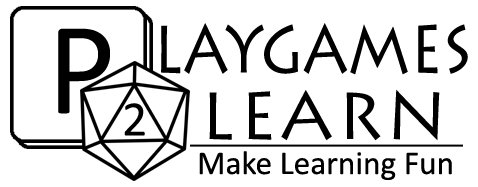
Introducing board games to your young children can be an “iffy” thing – especially with the more involved games.
- Long gameplay
- Strategy, thinking long-term
- Need to do well, need to win
- Rules complexity, reading comprehension
- Player versus player (alliances, stealing, hurting or killing)
These are all challenges to ability, attention span, and appropriateness. But, you are playing other board games with them. What happens when they see these “older” games on the shelf and ask to play them?
As general rule, we try to avoid saying:
- You are too young
- You won’t understand
- It’s too hard
- It’s too complicated
- Wait until you’re older
We want to give kids the chance to try, whenever we can.
Start Small
Monopoly and Risk are two games that have all the above challenges. When we started playing board games with our daughter, we were open to introducing her to these games. But, we knew that she was not of the age where it would be possible for her to “play by the rules”.
So, we would say something like “This is a game about X. Do you want to see? Let’s take a look at what’s in the box” and go from there.
If her interest remained, we would then demonstrate a few parts at a time – looking for the learning embedded in the gameplay. For example, when we played Monopoly for the first time, we just rolled the dice and collected the properties we landed on. Once all the properties had been given out, the game was over. Buying the properties (and making change) was introduced later. Building houses, paying rent, and going bankrupt after that.
In the case of Risk, we did a similar thing. We used the game to talk about geography (countries, continents, and oceans) by matching cards to their locations on the board. Later, we introduced the dice competition aspect of the game and then the whole world-domination-thing. Eventually, we played a few full games, but it has not become as popular as others. Some games we have yet to try even once – that’s just the way it goes.
We have also adapted games to the age of our daughter. For example, with Clue we changed the game such that each player would tell a story about what happened in the room with the person and the implement, but without all the murder. Something like: “Professor Plum was in the Kitchen with the Wrench and he broke the pipes under the sink and caused a flood which led to… [insert additional disaster, etc, etc].” She loved that – the worse the chain of events, the better.
And with Talisman, a favourite, we used to kick-start the game by dealing out a number of Adventure Cards to each player. A drawback(?) to that approach was that made it hard to get overly attached to your characters. 
Much to our surprise, the first time we played Talisman our daughter won the game. She rushed the Portal of Power and somehow managed to make it through the remaining challenges to the Crown of Command. To her delight, we had to inform her that she was now able to tell us to “Surrender or die!” Now, years later, she still reminds us about that every time we take the game out.
Introducing Board Games
So don’t wait or hide the games for older players – adapt them or use pieces of them. Children love to make up “playground” games and extensive rules for them, making them more challenging as they get older. Scaling board games is a similar thing.
Breaking the more complex board games into playable pieces, and then reassembling them as the children mature, allows you to introduce these interesting games earlier than otherwise. Also, the variations in play will show them that there is not just one set of unbreakable rules for a game, and that rules can be negotiated (just beforehand, please!)
Most importantly, we believe that introducing board games in this sort of staged manner will help implant the interest and inspiration for the children to create their own board games – hopefully driving all sorts of learning through play.
Join our Community of Parents and Educators!
At Silverpath Publishing / PlayGames2Learn.com, we believe in #LearningThroughPlay to help #MakeLearningFun. We publish fiction and educational tabletop games for children and young adults.
To receive announcements about new releases and promotional discounts as well as invitations to participate as beta-readers or play-testers, subscribe to our mailing list.
